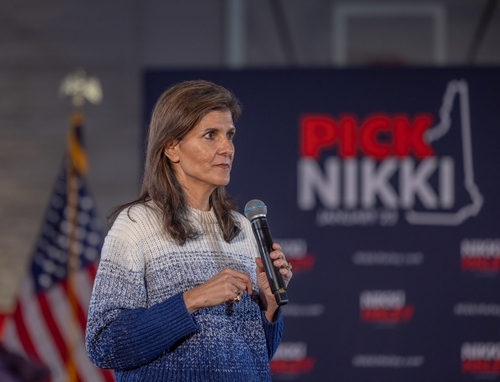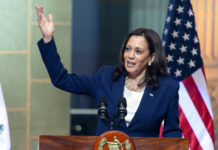
Former UN ambassador Nikki Haley’s recent foray into the political limelight has left some members of the conservative base questioning her ability to lead the party to victory. Despite her attempts to cast herself as a powerful voice for conservative values and a fresh face for the future of the Republican Party, Haley’s actions have betrayed inconsistencies with the principles she claims to champion.
In her tenure as the governor of South Carolina, Haley seemed to embody a strong conservative ethos — from her staunch defense of the Second Amendment to her efforts to lower taxes. However, critics point to Haley’s decision to remove the Confederate flag from the State House grounds as a moment of capitulation to progressive interests, suggesting that her actions were a betrayal of Southern heritage and an alarming concession to political correctness.
🚨 Nikki Haley lost her home county of Bamberg to Donald Trump by 30 points. https://t.co/4xFpEnSQmS pic.twitter.com/o2TdWM1WF8
— Benny Johnson (@bennyjohnson) February 25, 2024
Haley’s time at the United Nations raised eyebrows as well, as her often hawkish stance on foreign policy diverged from the more non-interventionist approach favored by a growing constituency within the party. While her tough rhetoric against adversaries like North Korea and Iran was well-received by traditional hawks, her apparent endorsement of maintaining an interventionist American foreign policy has left some grassroots conservatives wary of a return to the days of nation-building and foreign entanglements.
More recently, Haley’s approach to the defining challenges of our times has been marked by what some perceive as a hesitancy to stand firm on conservative values. Her criticism of President Donald Trump in the wake of January 6th deviated from the unwavering support he enjoys from the base, and her subsequent seeming reversal—praising his leadership—raises concerns about her political reliability and conviction.
“She’s one of our better surrogates.“
He just said the quiet part out loud. pic.twitter.com/tdZgxncpe8
— Semisi 🇺🇸 (@RealSemisi) February 25, 2024
Financially, Haley has come under scrutiny for her reliance on establishment donors, potentially signaling an uncomfortable alignment with the very corporate interests that an increasing segment of the party faithful feels have too much influence over Republican politics. This relationship with establishment money may suggest to grassroots activists that Haley’s conservative commitment is secondary to the preferences of her financial backers.
On immigration, an issue at the core of the conservative agenda, Haley’s record is not without its shortcomings. Critics argue that her policy proposals lack the rigor needed to effectively combat illegal immigration — a critical issue for a party which has prioritized a strong stance on border security as a key platform.
Furthermore, her own political ambitions have at times appeared to be at odds with the collective goals of the party. Haley’s departure from the Trump administration raised questions about her timing and intentions—and whether her eyes were set more on her future prospects than on serving her role to its full term.
The path ahead for Nikki Haley is uncertain. While she retains a platform and a following, these missteps have culminated in an air of skepticism amongst the conservative base. As the Republican Party looks toward the future, the leaders it chooses must demonstrate a steadfast commitment to the principles they espouse. Only time will tell if Haley can realign her vision with the expectations of her conservative constituents.








